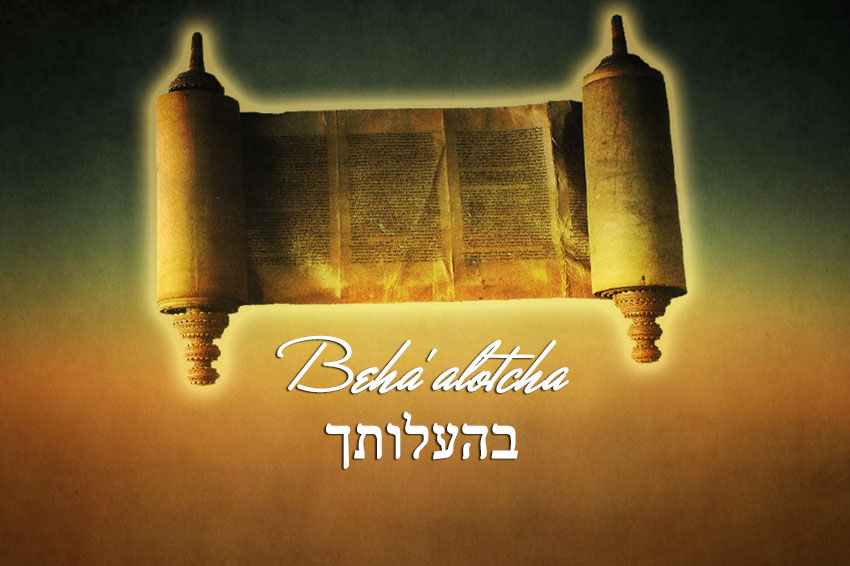The Talmud teaches us that the righteous will enjoy a special celebration in the World to Come:
God will make a [dancing] circle for the righteous, and He will ‘sit’… and each one of them will point with his finger and say, “This is God- we have yearned for Him!”
-Gemara Ta’anit
Commentaries explain that the details of this description contain great wisdom. Not only will this be a moment of intense happiness for the righteous, but it will actually reflect their efforts in serving the Creator. Why will God specifically arrange that they dance in a circle? And what is the significance of every person pointing at God, so to speak? The answer given is that because a circle has no defined lines, but is rather one self-contained continuum, it thereby represents perfection and wholeness- the picture of a self-contained entity. Hence, it will be fitting to mark the universe’s restoration to its proper state, finally reflecting God’s Oneness and perfection, particularly with a circular formation.
When the righteous see the realization of their dream- namely, the revelation of the Creator’s Glory to humanity- their joy will be selfless; they will rejoice for God alone. And yet… each will point on his own, and each will make a declaration of his own- seemingly signs of an intensely personal aspect of this moment. What do these things mean? The rabbis teach that they allude to an important concept in Judaism: the fact that every single person has his own unique service of God. Of course, we are all bound by the entire Torah, in all its amazing detail. Certainly, our path in the service of God must abide by the traditions and customs of our ancestors. Yet, in adhering to all of these tenets, there is still room for- and even emphasis to be placed on- every person’s own innate makeup, strengths, and inclinations. We are meant to motivate ourselves, to find inspiration and enthusiasm, from within ourselves. We are expected to know and appreciate our personal talents and abilities, and then to channel them in the service of God. We should recognize the areas in which our particular predispositions and skill sets are valuable or necessary, and then focus our energies on using them for our own development- and for the betterment of our nation and the world.
Every righteous person, then, points from his own vantage point- that is, from his own particular service of God- and may ‘point’ along the path that he took to achieving closeness with Him. And yet, even as the specific self-realization, the defined uniqueness, of every righteous person is acknowledged, the group still points as one to one Center, to one focal point that is immutable… and also equidistant to all along the circle-continuum. Everyone has equal opportunity to access God, to develop a relationship with Him by following His word and aiming to perfect one’s character…
These concepts may add another dimension to the opening verse of this week’s Torah portion:
…When you light the Menorah, toward the middle of the Menorah should the seven lamps light.
The Menorah and its holy light famously symbolize the Light of Torah wisdom. Additionally, they represent our relationship with God. The Talmud (Gemara Shabbat) compares God’s commandment that we light the Menorah to a benevolent king who walks towards a destination at night. Although the king already has his own torch, he nevertheless asks a commoner to light the way for him- because he wants that subject to feel the satisfaction of serving him. Similarly, the Gemara tells us, God does not need the light of the Menorah, but rather wants us to draw closer to Him through its lighting.
Perhaps we can expound, then, upon the necessity for all of the lamps to be facing the middle one. Being that the Menorah stands for Torah and a connection with God, and knowing that “The Jewish nation and the Torah and God are one,” (a common phrase linking three teachings of the Zohar-kabbalah) we may posit that all of us- whatever our strengths and inclinations- must always focus solely on God. Even though one’s soul-flame is unique, it must always be bent, with complete subjugation, towards the will of God.
These thoughts complement last week’s Torah portion perfectly. We noted that the Nesi’im, even as they brought identical sacrifices, differed from one another in thought and feeling. The Torah repeated the sacrifice procedure verbatim for each Nasi, we cited, because God values the underlying intent and emotion of every good deed. Today, with our new understanding of the Menorah, we reinforce that God cherishes the unique relationship that He has with every person.
If we can actualize our own strengths while maintaining a single-minded focus on serving God properly, we will be assured of bettering ourselves as people- coming closer to God while finding satisfaction and self- fulfillment.
Have a great Shabbat!
Elli Schwarcz
Elli is an alumnus of the Toras Moshe, Ner Israel, and Carteret Yeshivos, and has been involved in Jewish outreach for almost 15 years. He is a Hebrew School and English Language Arts teacher, and has a Master’s Degree in Counseling from Johns Hopkins University. Of all his pursuits, Elli most enjoys teaching high-level Jewish thought and Talmud to teenage boys, exposing them to the beauty and wisdom of their heritage while highlighting their own ability to engage in advanced Torah learning. Elli lives in Lakewood, New Jersey, with his wife and children.
